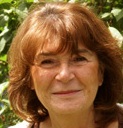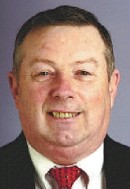For public school students and their parents, some newcomers hope to be elected to the Syracuse School District in November.
Of the seven seats on the Syracuse City School Board, three are up for election on Nov. 5.
As of March 29, two of the three incumbents have decided not to seek reelection. Those not running are Calvin Corriders, now the board vice president who has been an education commissioner for more than a dozen years, and Richard Strong, who was first elected in 2001.
Now, all board members are Democrats. Patricia Body will seek re-election. Remaining on the board are its president, Stephen Swift, Bill Bullen, Maxwell Ruckdeschel and Michelle Mignano.
In addition, the Democrat Party has seen interest from six other people hoping to enter the race as a Democrat. They are Ronald Bell, David Cecile, Roosavelt Baums, Ednita Wright, Janelle Boyd, and Taino Palermo. According to the Onondaga County Democratic Committee’s Brianne Murphy, two more have expressed interest, but the Committee did not yet have all their information.
So far, the Republican Party has received interest from one potential candidate. Edward J. McLaughlin, a retired police officer who served on the board from 1998 to 2002, has expressed interest, according to city GOP chairman Bob Andrews. Since 2002, McLaughlin has run five times and lost.
A second candidate has approached the GOP, Andrews said, adding that the candidate’s identity is not yet public.
Education commissioners oversee 13 elementary schools, 12 middle and K-8 schools and eight high school, adult education and alternative buildings in the Syracuse City School District. They hire the superintendent, set budgets and implement district-wide policies, said George Theoharis, associate dean for urban education partnerships at Syracuse University. The part-time commissioner position comes with a yearly salary of $7,500.
The commissioners elected this fall will inherit a school district struggling with major challenges: On-time graduation rates are below 50 percent and a proposed budget cuts the equivalent of 96.7 full-time positions.
Here’s an early look at some of the potential candidates so far:
 Patricia Body (Democrat, incumbent):
Patricia Body (Democrat, incumbent):
Patricia Body has been on the board for three and a half years. She is a retired Onondaga County social worker.
As the only social worker on the board, Body said, she brings a unique perspective to the position. “I’ve spent a lot of time with the families in our area and I know a lot of their needs and I know a lot of issues that they face,” she said. One of her primary goals for the district, she said, is to create all-day pre-kindergarten programs that are available to all four year-olds in the district. She would also like to see more high school seniors able to graduate and better college preparedness among those graduates, she said.
Body is a graduate of Central High School and her son graduated from Nottingham High in 2007.
 Edward McLaughlin (Republican, challenger):
Edward McLaughlin (Republican, challenger):
Ed McLaughlin is a 20-year police veteran who retired in 1993 to open a small business. As a former Syracuse School Board member, Ed McLaughlin expresses frustrations with the district. He has grown tired, he said, of watching the “downward spiral of people leaving the city because of the way to schools were performing.”
Above all, McLaughlin said, he wants to see more accountability in the district. “We’ve got a fine school district. We just have got a terrible school board,” he said. “The board is failing.”
His plan to help fix the schools, he said, calls for a “tough love” approach that includes merit-based pay for district employees and consequences for failure to meet benchmark goals.
McLaughlin is a graduate of Syracuse City Schools. His children all graduated from Syracuse schools and his granddaughter attends a city school.
 Ronald Bell (Democrat, challenger):
Ronald Bell (Democrat, challenger):
Ronald Bell is a retired teacher who worked for 21 years in Syracuse and who now serves as the executive director of the Syracuse Shakespeare Festival and owns his own recording studio.
If he is elected, he said, he has a three-pronged plan to improve schools:
- Form community schools to serve as community hubs for resources like health, social services, academics and community groups.
- Assign each board member to different parts of the district so that each may be an “expert” on his or her designated schools.
- Turn one school in each of these quadrants into a teacher-run school that replaces positions like principals with a committee of teachers.
“I think that we can deliver better services to students in the future if we can do it a little more creatively,” Bell said.
David Cecile (Democrat, challenger):
David Cecile retired as principal of Henninger High School in June after 36 years as an educator. Being elected to Syracuse’s school board, he said, would feel a little like a natural extension of his career.
“I actually have worked in the schools, I know what a school day looks like in our buildings,” Cecile said. In addition, he said, his family is deeply rooted in the city’s schools. Two of his children work as Syracuse school teachers. His grandchildren attend city schools. “I feel very invested,” he said.
His biggest goal, if elected, would be to help the school board and other school officials to understand how the schools really operate day-to-day, Cecile said. “One of my goals,” he said, “is to help people understand that process and make, I think, better decisions that will support the schools, teachers and the kids.”
 Taino Palermo (Democrat, challenger):
Taino Palermo (Democrat, challenger):
Taino Palermo is the youth development director at YWCA, a job that he says has helped him to get to know the children affected by the board’s decisions and policies.
“Our current board of education is making policies that reflect and impact communities that they are not connected to,” he said. “I am connected to those communities.”
If elected, he said he would like to see the schools become more connected to the community. “Public schools are paid for by the taxpayers, so therefore they should own it, and they don’t own it,” said Palermo. He would ultimately like to open the schools to more community groups to bridge the gap between the public and the schools, he said
Palermo is pursuing his doctorate in education at Jones International University with a focus on the effects of Syracuse’s low graduation rates on the city. “I switched my whole dissertation to studying social impacts of the consistently low graduation rate in Syracuse,” he said.
Roosevelt Baums (Democrat, challenger):
Roosevelt Baums is the pastor at the James Street United Methodist Church. To fix city schools, he calls for changing what he calls the schools’ “climate.”
He would look at the policy on suspending students, he said. Instead of suspending students for minor infractions and pushing them out of the schools, Baums said, the community should look at the root causes of the problematic behavior.
Baums also would like to extend the amount of time students spend learning. For example, he cited the possibility of children spending time with community organizations in addition to spending time in class so that they may keep learning, even after the bell rings. “Many of our students are not prepared for college adequately,” he said.
He also would like to tighten the link between schools and the community, he said. “We need to stop the division between students, administrators and the community,” said Baums. “And we need to let creative unity truly support our children and their families.”
(Heather Norris is a graduate student in magazine, newspaper and online journalism.)
-30-


